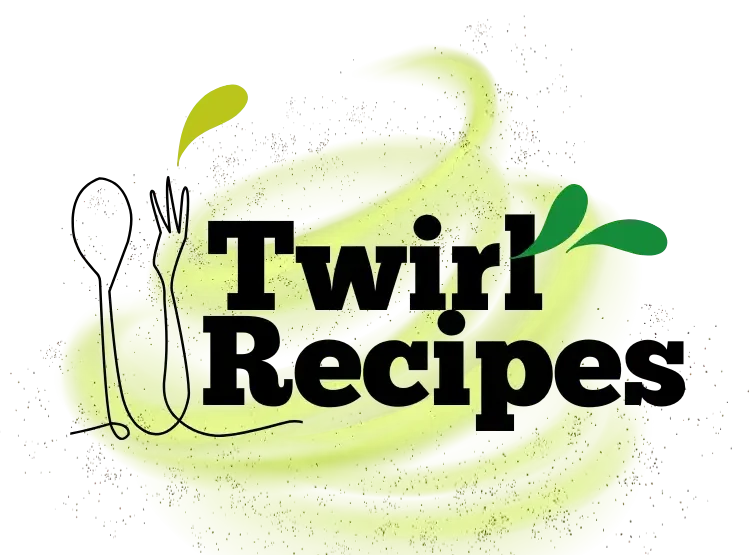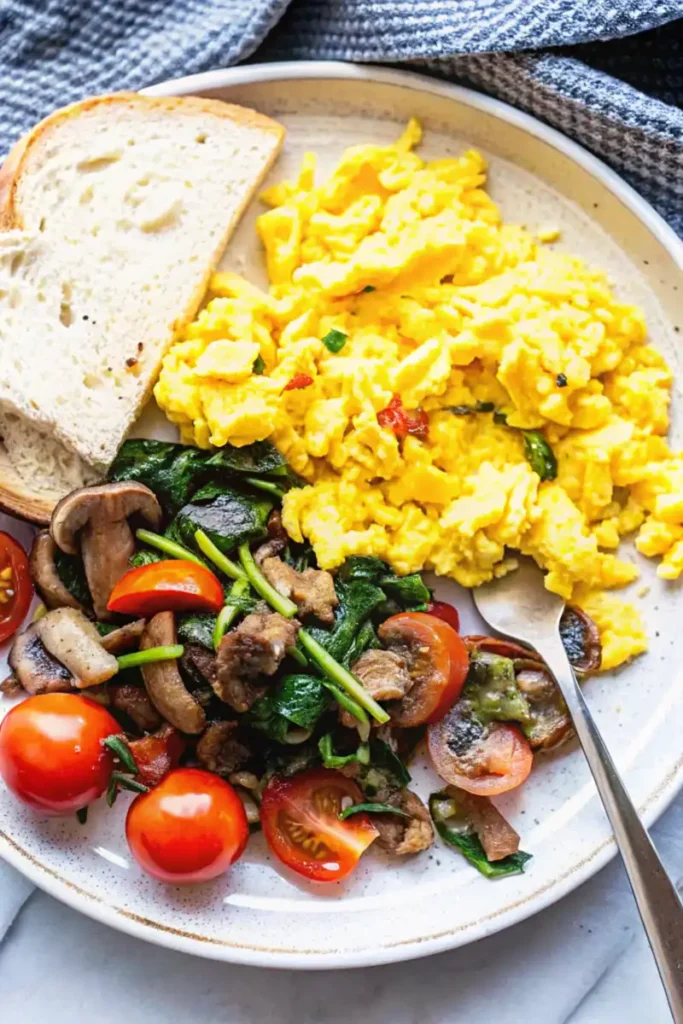Discovering the joys of cooking with vegan eggs is like finding a hidden gem in the culinary world. Whether you’re new to plant-based living or just curious, these alternatives can transform your recipes. From fluffy pancakes to savory casseroles, these substitutes offer endless possibilities without compromising on flavor or texture. So, grab a whisk, and let’s dive into the world of vegan eggs together!
JUMP TO
Why Choose Vegan Eggs?
Health and Environmental Benefits
Did you know that vegan eggs are not only delicious but also better for your body and the planet? They’re cholesterol-free, making them a heart-healthy choice. Plus, they’re lower in saturated fats compared to traditional eggs. For those watching their carbon footprint, vegan eggs are an eco-friendly alternative since they require fewer resources like water and land to produce. It’s a win-win for your health and the environment!
Who Can Benefit from Vegan Eggs?
Vegan eggs are perfect for anyone and everyone! Whether you’re vegan, allergic to eggs, or just looking to add more plant-based options to your diet, these substitutes are versatile and easy to incorporate into your meals. They’re also a lifesaver for bakers who want to cater to diverse dietary needs.
What Are Vegan Eggs?
Definition and Overview
At their core, vegan eggs are a plant-based alternative to traditional eggs. They’re designed to replicate the texture, taste, and cooking properties of eggs while being entirely free from animal products. These innovative substitutes are crafted using ingredients like mung beans, chickpea flour, and even aquafaba (the liquid from canned chickpeas). They’re perfect for anyone aiming to create egg-based dishes without compromising their ethical, dietary, or health preferences.
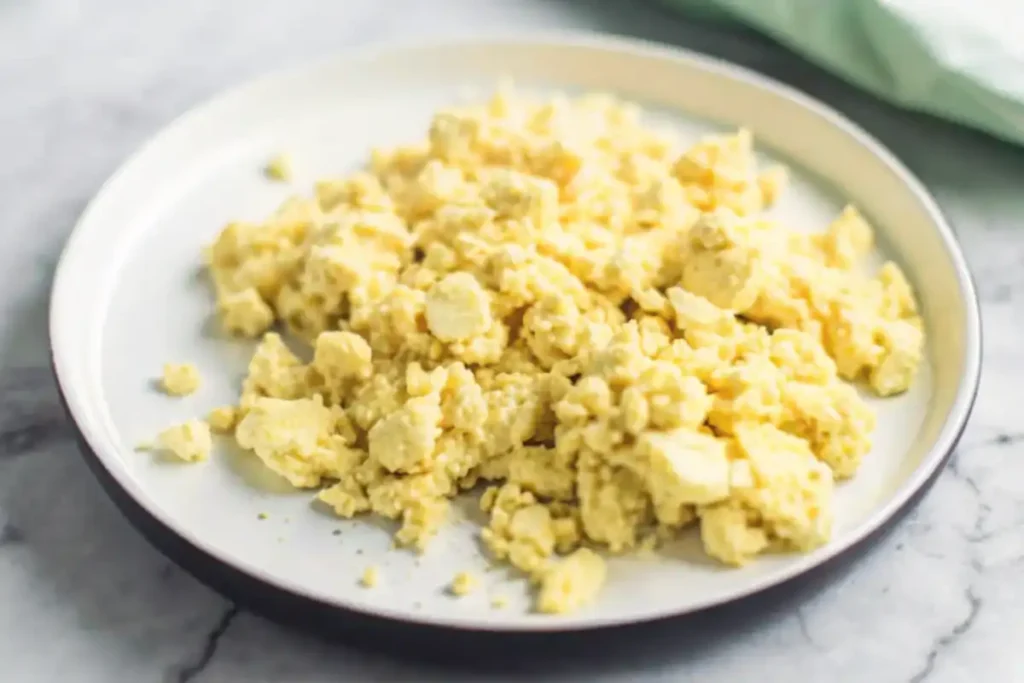
Common Ingredients in Vegan Eggs
What makes vegan eggs so versatile? It’s all about the clever use of plant-based ingredients!
- Mung beans: These are a star ingredient in many store-bought vegan eggs, known for their egg-like texture when cooked.
- Chickpea flour: A pantry staple for DIY enthusiasts, this flour is high in protein and creates a fluffy texture in recipes like omelets or pancakes.
- Aquafaba: This magical liquid can whip up into peaks, making it a go-to for recipes like meringues or macarons.
- Nutritional yeast: Adds a savory, “eggy” flavor to vegan egg mixes, elevating your dishes.
How Do Vegan Eggs Compare to Regular Eggs?
While they look and act like traditional eggs, vegan eggs come with extra perks. They’re cholesterol-free, rich in fiber (thanks to plant-based ingredients), and often fortified with vitamins like B12. Unlike regular eggs, they don’t carry the risk of salmonella, making raw consumption safe—perfect for recipes like cookie dough or batter-based desserts. Keep these substitutes handy for guilt-free and allergy-friendly cooking!
Types of Vegan Egg Substitutes
Store-Bought Options
If convenience is your thing, store-bought vegan eggs are a fantastic option! These products are pre-made, easy to use, and designed to mimic the properties of traditional eggs. Popular brands like JUST Egg and Follow Your Heart have revolutionized plant-based cooking, offering versatile solutions for baking, scrambling, and more.
Store-bought options often come fortified with essential nutrients like B12 and Omega-3s, making them a nutritious choice for those embracing a plant-based lifestyle. They’re also super simple to prepare—just pour, cook, and enjoy! Whether you’re whipping up a quick breakfast or experimenting with recipes, these options ensure a seamless egg replacement.
Homemade Vegan Egg Substitutes
Prefer the DIY approach? Homemade vegan egg substitutes are not only budget-friendly but also fun to make. Here are some simple alternatives you can try:
- Flax Eggs: Mix 1 tablespoon of ground flaxseed with 2.5 tablespoons of water, let it sit for a few minutes, and voilà—a perfect binding agent for baked goods.
- Chia Eggs: Similar to flax eggs, chia seeds work wonders for binding and add a subtle crunch.
- Aquafaba: Three tablespoons of aquafaba equal one egg, making it ideal for recipes like mousses or meringues.
- Mashed Bananas or Applesauce: These fruity substitutes add moisture and sweetness to recipes like pancakes or muffins.
For inspiration, consider trying these substitutes in recipes from our Blended Overnight Oats article. A flax or chia egg would complement the texture beautifully while keeping the recipe plant-based and nutritious.
Choosing the Right Substitute for Your Recipe
Not all substitutes are created equal. For baking, flax or chia eggs are best for their binding properties. Aquafaba shines in recipes requiring fluffiness, like mousses or cakes. For savory dishes, such as quiches or vegan omelets, opt for store-bought vegan eggs or chickpea flour mixtures for their rich flavor and egg-like consistency.
Experimentation is key—find the substitute that best suits your culinary needs and taste preferences!
How to Use Vegan Eggs in Cooking
Baking with Vegan Eggs
Baking with vegan eggs can be a delightful experience. They’re an excellent binding agent, offering structure and moisture to your favorite treats. Whether you’re making cookies, muffins, or cakes, substitutes like flax eggs or aquafaba deliver results that rival traditional eggs.
For example, using aquafaba in recipes like Sourdough Cinnamon Rolls can enhance their fluffiness, making every bite irresistible. Pro tip: whisk the aquafaba until frothy before adding it to your batter for an airy texture!
Vegan Eggs in Breakfast Recipes
Craving a hearty breakfast? Plant-based eggs are your new best friend! From fluffy scrambles to vegan omelets, the possibilities are endless. Pair store-bought options with your favorite veggies for a protein-packed scramble, or try a chickpea flour batter to create a savory pancake.
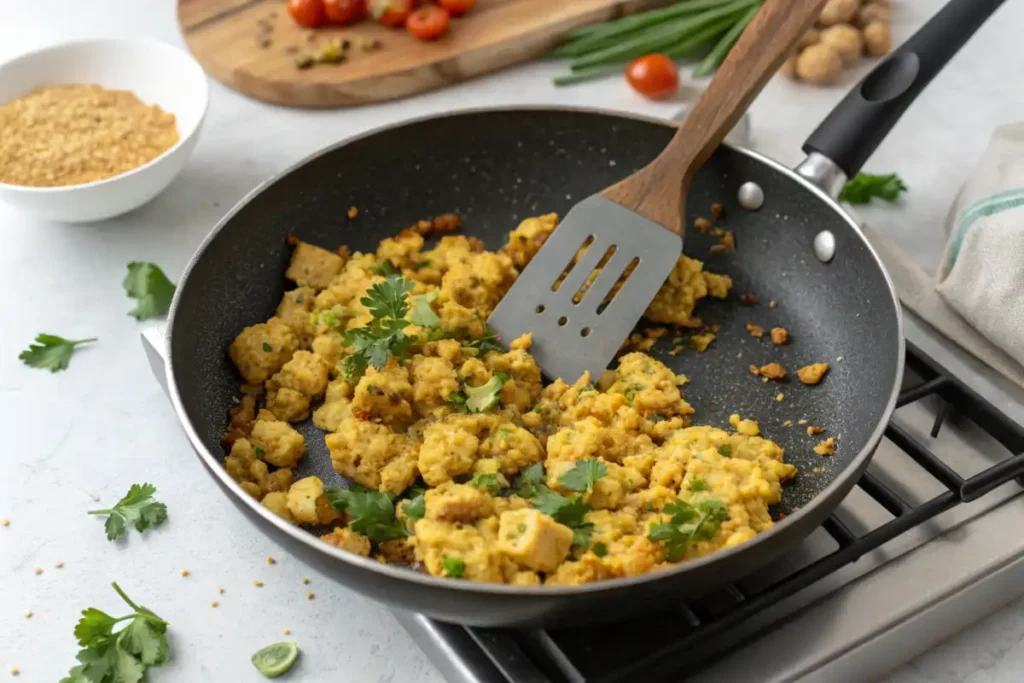
Pair your creations with options from our Sourdough Breakfast Recipes for a breakfast spread that’s both satisfying and plant-based. Think vegan scrambled eggs alongside golden sourdough toast—perfection!
Savory Dishes and Beyond
The versatility of vegan eggs extends well beyond breakfast. Use them to craft savory quiches, casseroles, or even plant-based frittatas. They work beautifully in dishes like vegan fried rice, where their texture mimics traditional scrambled eggs.
Try incorporating vegan eggs into recipes like our Buttercup Squash Recipes for a creamy, comforting twist. The combination of rich, plant-based eggs and sweet squash is bound to impress!
With so many ways to use vegan eggs, your meals will never be dull. Get creative, experiment with flavors, and enjoy the endless culinary possibilities!
Nutritional Breakdown of Vegan Eggs
Comparison with Traditional Eggs
When it comes to nutrition, plant-based egg substitutes bring unique benefits to the table. Unlike their traditional counterparts, they’re completely cholesterol-free, making them a heart-friendly option. Additionally, they tend to be lower in saturated fat, which is great news for those keeping an eye on their dietary intake.
While traditional eggs might edge ahead in protein content, many vegan egg products compensate with fortification. Brands often include essential nutrients like Vitamin B12 and Omega-3 fatty acids, boosting their overall value. Plus, vegan options frequently provide fiber—something regular eggs simply don’t offer. These small but impactful differences make egg-free alternatives a smart and health-conscious choice for modern kitchens.
Additional Nutrients Found in Vegan Eggs
Many store-bought vegan egg substitutes are enhanced with vitamins and minerals to support a balanced diet. Here’s what you might find in your plant-based egg carton:
- Vitamin B12: Essential for energy production, especially for those on a vegan diet.
- Iron: Supports oxygen transport in the body, which is vital for maintaining energy levels.
- Omega-3 Fatty Acids: Promotes brain and heart health, making vegan eggs a wholesome addition to your meals.
Curious how to incorporate this nutritional powerhouse? Try them in a cozy recipe like our 4-Ingredient Potato Soup. A dollop of vegan egg mixture can add creaminess and a touch of protein to this simple, comforting dish.
Health Benefits of Vegan Eggs
Beyond the numbers, plant-based eggs come with health perks that extend into everyday living. Their plant-based ingredients support better digestion and reduce the risk of certain chronic diseases associated with high cholesterol. Whether you’re making savory casseroles or indulgent desserts, vegan eggs let you enjoy your favorite foods while staying aligned with your wellness goals.
Tips for Buying and Storing Egg Alternatives
Where to Buy Vegan Eggs
Finding vegan eggs is easier than ever! Most grocery stores now carry popular brands like JUST Egg and Follow Your Heart in the refrigerated or plant-based sections. If you’re shopping online, platforms like Amazon and specialty vegan stores offer a variety of options to explore.
Pro tip: When picking a brand, check the ingredient list for added nutrients like Vitamin B12 and Omega-3s to get the most out of your purchase.
Storage Guidelines
To keep your vegan eggs fresh and ready for any culinary adventure, proper storage is key:
- Refrigerated Vegan Eggs: Store them in the fridge at the temperature specified on the packaging. They typically last for several weeks.
- Homemade Vegan Egg Substitutes: If you’ve whipped up flax or chia eggs, store them in an airtight container in the fridge for up to 3 days. Aquafaba, when not used immediately, can be frozen in ice cube trays for longer shelf life.
- Freezing Store-Bought Options: Some vegan egg products can be frozen—just double-check the label for specific instructions. Thaw them in the fridge overnight before use.
For optimal results, always shake or stir liquid vegan egg products before cooking to ensure an even texture. Keeping these tips in mind will make sure your vegan eggs are always ready to shine in your favorite recipes!
With a little care in purchasing and storing, you’ll always have a reliable plant-based egg substitute on hand for breakfasts, baked goods, and everything in between.
Vegan Egg Recipes to Try
Quick and Easy Breakfasts
Start your day with delicious vegan egg breakfasts that are as simple as they are satisfying! Whip up a quick vegan scramble by sautéing store-bought vegan eggs with your favorite veggies—think bell peppers, spinach, and mushrooms. Pair it with sourdough toast for a hearty meal, or try a chickpea flour batter to make savory pancakes.
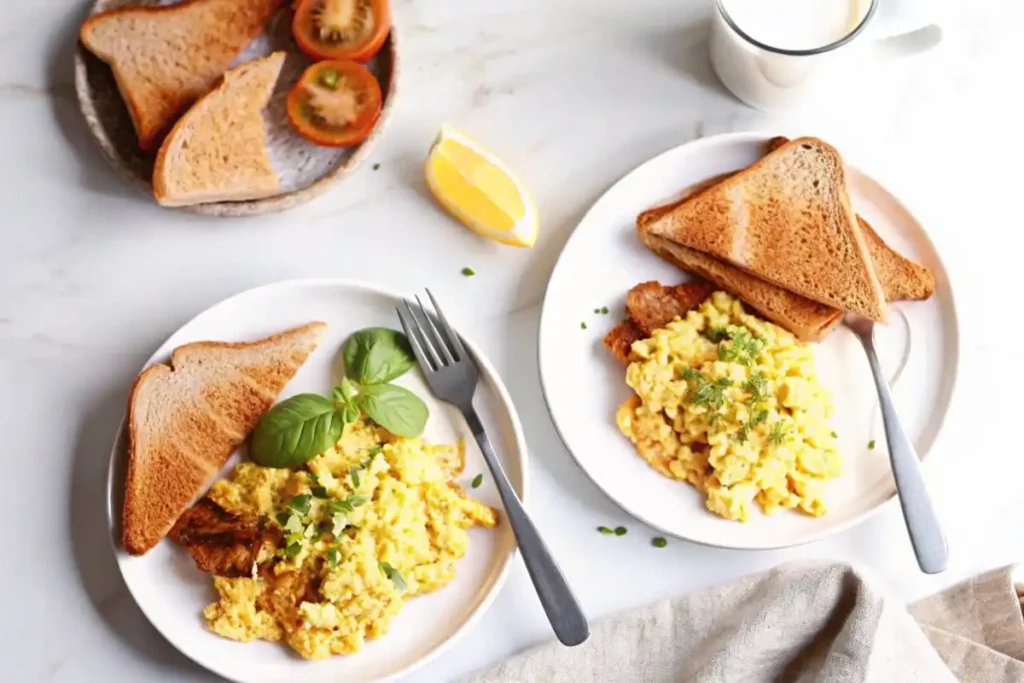
For something sweet, vegan eggs are perfect for creating fluffy pancakes or golden waffles. Use them in our Sourdough Breakfast Recipes to add a protein boost while keeping everything plant-based. Who says mornings can’t be both easy and indulgent?
Delicious Desserts
Baking with vegan eggs opens up a world of dessert possibilities! From brownies to cookies, these substitutes work wonders in binding and adding moisture to your treats. Aquafaba, for example, is perfect for whipping up airy meringues or mousses.
Why not try incorporating vegan eggs into your favorite cake recipe? They’re a fantastic alternative for recipes like our Chocolate Wafer Cookies to achieve a rich, chewy texture while staying vegan-friendly.
Creative Savory Dishes
Beyond breakfast and desserts, plant-based eggs are a game-changer for savory meals. Use them to craft vegan quiches, casseroles, or even a plant-based frittata. For a quick dinner idea, try adding them to fried rice or pad Thai for an eggy texture without the eggs.
Looking for something unique? Combine vegan eggs with our Buttercup Squash Recipes for a creamy, satisfying twist on classic comfort food. The blend of squash and plant-based eggs is sure to impress your taste buds and dinner guests alike!
Experimenting with vegan egg recipes is fun, versatile, and endlessly delicious—perfect for every meal of the day!
FAQs About Vegan Eggs
Do vegan eggs taste like eggs?
Yes, plant-based eggs are designed to mimic the taste and texture of traditional eggs closely. Store-bought brands like JUST Egg often use ingredients like mung beans and nutritional yeast to replicate that savory, “eggy” flavor. While some may notice slight differences, most people find them impressively similar in taste, especially when used in recipes like scrambles or omelets.
What do vegans use in place of eggs?
Vegans use a variety of substitutes depending on the recipe! Popular options include flax eggs, chia eggs, aquafaba, and mashed bananas for baking. For savory dishes, chickpea flour or store-bought vegan egg products like JUST Egg are go-to choices. These substitutes work well in everything from cookies to casseroles.
Why is Just Egg not vegan?
JUST Egg is vegan! It’s made entirely from plants, with mung beans as the primary ingredient. However, some confusion arises because it’s often stored alongside non-vegan products like traditional eggs. Rest assured, it’s a fully plant-based option and a fantastic choice for vegan cooking.
Are vegan eggs healthier than real eggs?
In many ways, they are! Plant-based eggs are completely cholesterol-free and contain less saturated fat than traditional eggs, making them a heart-healthy alternative. Additionally, many of these substitutes are fortified with essential nutrients like Vitamin B12 and Omega-3 fatty acids, which are particularly beneficial for those following a vegan or vegetarian diet.
While traditional eggs are rich in protein, plant-based options often include added fiber—an advantage regular eggs don’t offer. This makes them not only nutritious but also a more ethical choice. Ultimately, it’s a balanced trade-off, with vegan egg substitutes standing out as a versatile and health-conscious option.
